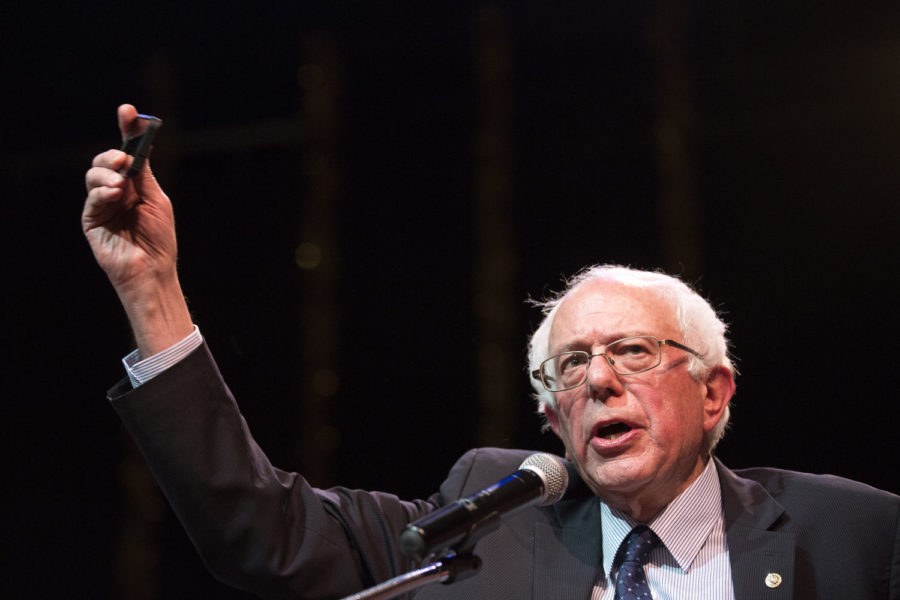Bernie Sanders’ lavish ‘Medicare for All’
January 19, 2016
For decades, many liberals have dreamed of a universal health insurance system in which the federal government provides coverage to everyone and pays the cost. Known as “single-payer,” it’s modeled on programs in Canada and Britain, among others, as well as Medicare.
Now Bernie Sanders is making that idea a centerpiece of his presidential campaign. He unveiled an outline for “Medicare for All” on Sunday. And one thing is clear: It has all the qualities of a dream.
If Sanders has his way, private health insurance will be a thing of the past, replaced by “a federally administered single-payer health care program” that “will cover the entire continuum of health care.” Patients will be free to choose their doctors, and everything will be simple and free, because there will be “no more copays, no more deductibles and no more fighting with insurance companies when they fail to pay for charges.”
Advertisement
How would Sanders pay the $1.38 trillion annual price tag he puts on his model? He would raise marginal income tax rates, which currently top out at 39.6 percent, to 43 percent on households earning $500,000 a year or more, going up to 52 percent on those making more than $10 million. He would raise taxes on capital gains, dividends and inheritances.
He would also impose a 6.2 percent “income-based health care premium paid by employers” and a 2.2 percent income-based premium paid by households. But most people, in his forecast, would come out ahead because they’d no longer be paying for private insurance.
Among the things Sanders skates over is the practical impossibility of getting this plan written into law. The Affordable Care Act got zero Republican votes, barely passing in the House and narrowly averting a filibuster in the Senate — back when Democrats controlled both chambers. Today, Republicans command a majority in each house, and they are likely to retain one if not both in the November elections. In that case, Sanders’ program wouldn’t be dead on arrival. It would be dead on departure.
Sanders also wants those covered to think they can have anything they want from medical providers at minimal cost to them. But that 6.2 percent levy on employers will almost certainly come out of wages. And the marginal tax rate increases he wants are so steep that they would almost certainly have a negative effect on investment and economic growth — to the ultimate detriment of workers.
The abolition of copays and deductibles, combined with the promise of covering any treatment or medicine any patient wants, would make this program far more generous than Medicare. The first effect would be to stimulate even more demand for services. The second would be to prevent sensible limits on therapies. No system can be financially sustainable under such lavish terms.
Sanders, however, insists he can bring down our total health care spending by $6 trillion over the next 10 years. Don’t bet on it.
“That’s tremendously aggressive cost containment, even after you take the administrative savings into account,” Larry Levitt, vice president of the Kaiser Family Foundation, told Vox.com.
Advertisement*
As Ezra Klein wrote on that website, the way single-payer systems curb expenditures is by “cutting reimbursement to doctors, hospitals, drug companies and device companies” — which inevitably means denying some treatments to actual patients. Canada and Britain are notorious for rationing care through long waits. One result, says the Fraser Institute, a free-market think tank based in Vancouver, is that 52,000 Canadians went abroad for treatment in 2014.
The bold new plan Sanders offers is really a variation on an old theme: the government will provide ever-more health care to more and more people at a lower cost. It ducks the painful problem of how much health care we can afford and pretends it can be financed without any real sacrifice by ordinary people.
In the long run, choices have to be made and trade-offs have to be accepted. Under Sanders’ blueprint, either the government would have to restrict access to some things people want, or it would end up spending far more than he claims.
He and his supporters are entitled to dream. But there comes a time when you have to wake up.
(c)2016 Chicago Tribune
Visit the Chicago Tribune at www.chicagotribune.com
Distributed by Tribune Content Agency, LLC.
Advertisement










